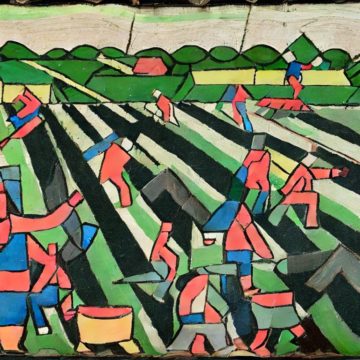 Ewald Engelen in Sidecar:
Ewald Engelen in Sidecar:
The shock among the Dutch chattering classes on 16 March was palpable. The right-populist Farmer–Citizen Movement (BBB) – established in 2019 by a small communications firm, bankrolled by the powerful Dutch agrifood complex and led by a former meat industry journalist – had massively increased its vote share in the country’s provincial elections. It is now the largest party in all twelve provinces, and expected to achieve the same status in Senate elections next month. This would give BBB veto power at both national and local levels, potentially bringing an already hesitant green transition process to a standstill. Faced with this prospect, an irate commentariat has begun to denounce the farmers as enemies of environmental progress, and speculate that voting restrictions – on the elderly, the ‘undereducated’, those in rural constituencies – might be necessary to override their resistance.
The casus belli for the farmers’ revolt was a 2019 ruling by the Dutch Supreme Court that the government had breached its EU obligations to protect 163 natural areas against emissions from nearby agricultural activities. This prompted the centre-right coalition government, led by Mark Rutte, to impose a nationwide speed limit on highways of 100km/h and cancel a wide array of building projects intended to alleviate supply shortages on the Dutch housing market. Yet it soon became apparent that such measures were insufficient, since transport and construction contributed a pittance to national nitrogen emissions. Agriculture, by contrast, was responsible for 46%. A structural solution would therefore have to involve substantial reduction of livestock. The suggestion long put forward by the marginal ‘Party for the Animals’, to slash half of the aggregate Dutch livestock by expropriating 500 to 600 major emitters, was suddenly on the table.
More here.
